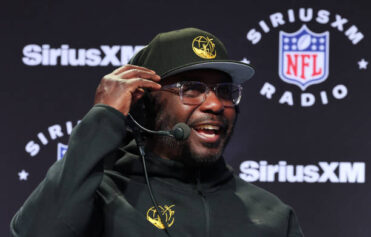Twenty years ago I had a manifest destiny moment. When I say “I”, I mean people like me. When I say people like me, I mean people with names like mines. For me, err, for us, going to the movies to see Spike Lee’s Malcolm X biopic was non-negotiable, but also a non-discussion. Who amongst us wasn’t gonna see it? None of them with names like mine, that was for damn sure.
Non-progressive white people are generally nervous around people without “standard” American names. I get the sense that they think we’re creeping on a come up. That somehow we’re not wholesale buying into the $9.99 wholesale assimilation package being offered at a store near you. In some regards that’s true, in others it’s not. The American part is not a problem, but for the “All-American” stuff, there’s certainly a line of demarcation. So, they look at us with some level of contempt.
Non-progressive black folks generally look at Muslims with high levels of contempt. Something about not eating pork that pisses them off. Plus, when Muslims see the white Jesus, shoulder shrugs ensue and an “awww” look in their eyes comes out. Black Christians don’t like that. Of course they get their jabs in, too. The bean pie and fish sandwich jokes are forever and usually funny, but the laughter at the hijab (or what some call the “beekeeper” head scarf or dress) is usually a tense moment. Thing is, black folks look the same regardless of religion and have the same issues and often date one another. It’s a funny balance. Or something.
Some people take these moments to heart. Others, such as myself, find them all useless. I tend to shun serious considerations about a specific religion. Not because I don’t believe in a higher power, but because I don’t believe in man’s lower instincts. Religion will make people, that would be friends otherwise, into enemies. People have spilled blood over religion since ancient times, and will continue to do so for as long humanity exists. Or until the comet hits or the robots take over, which ever comes first. The divisiveness of religion makes it, in many ways, anti to its core credo and thus I am often unmoved.
When Malcolm X dropped on Nov. 19, 1992, all those worlds came together. That was a highly anticipated movie for Christians, Muslims, Jews, etc.
The Malcolm X fever had been bubbling in the undercurrents for years. The movie would seek to either confirm or disprove all of the theories of his life. Grand orator, demagogue, “shining prince,”, racist, civil rights leader, religious zealot, etc. Everybody had a story to tell, but with the major cinematic release, drop dead at the start of the major movie season, this was primed to be “the” story.
For Lee, coming off the fame of School Daze and Do The Right Thing this was to be his black history monument. His telling of the life of one of the most important figures of the 20th Century. Initially though, the concern was not whether Lee could do a good job, but whether he’d have enough money. Warner Bros, the studio in charge of the film, gave Lee a hard cap budget of $28 million dollars. Lee needed substantially more and was forced to seek assistance from people such as Oprah Winfrey, Eddie Murphy and Bill Cosby. Additionally, there was significant pushback from the grassroots class, who looked at Lee and the like as being somehow unofficial and not worthy of handling such a precious story. Noted poet Amiri Baraka was quoted in a NY Times article saying that “We will not let Malcolm X's life be trashed to make middle-class Negroes sleep easier."
In black circles, Malcolm X was held in high esteem even by those who didn’t understand Islam. Malcolm, or El Hajj Malik Shabazz as he would go on to be officially known, represented the other side of the coin for black freedom seekers in the 1960’s. Based off of the classic Alex Haley autobiography, the movie was to tie all the loose strings together and bring a level of formality to the black cinematic experience. In the early 90s, black movies mostly consisted of epic inner-city tales of violence and abuse. Some like Boyz In Da Hood, though classics notwithstanding, were seen as a depiction of the worst of our culture by many people. Malcolm X was to be a testament to the inner greatness of a people – a well-made drama, a historical set-aside, where the discussions of human interaction would exist on an intellectual level usually reserved for white movies.
And it was. The film was highly acclaimed and Lee’s direction was smart, specific and, though slightly romanticized, fully satisfying. Denzel Washington, who at that point was already a star, turned in an exemplary depiction, officially becoming one of the preeminent actors of his era. Washington was nominated for a Best Actor Oscar and the movie would go on to win a bunch of small awards, but nothing major unless you consider an MTV Movie Award to be highly significant (in 2010 the movie was recognized and selected for preservation by the Library of Congress.)
The movie would gross nearly $50 million at the box office, audibly that sounds slight by today’s mammoth numbers, but, in the early ‘90s, that was a respectable haul. Though its lack of awards bothered some members of the black intelligentsia class, it was not a concern for many people that I knew. The fact that story was told at all, was sufficient. The hope was that a better understanding would be the result of the movie.
Twenty years later, can anyone answer that question? Are we post-religious? The tragic events of 9/11 seemingly hit the reset button on any Islamic forays in the mainstream. Since then, there has been a struggle to break away from the negative connotations associated with the Middle East. However, there have been moments of progression. Even if last names like mine are still considered exotic, first names like mine are no longer controversial, as any cursory glance at a middle school attendance sheet will confirm. Religious coalitions between black churches and black mosques are stronger than ever and because of common opposition (namely some segments of the GOP) those bonds are likely to stay strong.
None of this is because of the Malcolm X movie, well at least not most of it. These are natural spots of evolution, but I think its fair to look at that as a flashpoint and as a moment where the fruits that are harvested now, may have gotten their start. If you have a copy at the house and you haven’t seen it in a while, it might be time to get reacquainted with an American classic.



